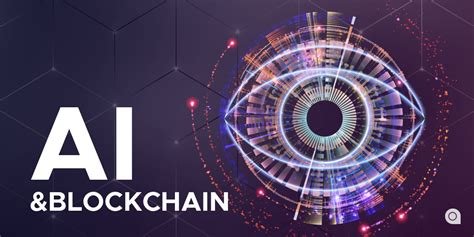
Blockchain is a decentralized and secure technology that has the potential to revolutionize various industries, including the government sector. The application of blockchain technology in the democratic election process can bring transparency and accountability to the electoral system, reduce the chances of fraud, and enhance the overall integrity of the democratic process. In this article, we will discuss the prospects of blockchain technology in government structures, especially in democratic countries.
Prospects of Blockchain Technology in Government Structures for Democratic Countries:
The application of blockchain technology in government structures can provide various benefits to democratic countries. Firstly, it can bring transparency and accountability to the electoral process, thereby enhancing the trust of the public in the democratic system. Secondly, blockchain technology can help in reducing the cost and time associated with the electoral process. It can eliminate the need for intermediaries and third parties, thereby streamlining the electoral process. Thirdly, blockchain technology can enable citizens to cast their votes from anywhere in the world, thereby increasing the accessibility and convenience of the electoral process.
Advantages and Possible Disadvantages of Implementing Blockchain Technology in the Electoral Process:
The implementation of blockchain technology in the electoral process can provide several advantages, such as enhancing the security and integrity of the electoral process, increasing the transparency and accountability of the system, and reducing the chances of fraud. However, there are also some possible disadvantages associated with the implementation of blockchain technology in the electoral process. For instance, the technology is still new and untested, and there is a risk of technical failures and errors. Furthermore, the high cost of implementing the technology can be a barrier for some countries.
Impact of Blockchain Technology on Electoral Fraud:
One of the significant benefits of blockchain technology in the electoral process is its ability to reduce electoral fraud. The technology can ensure that only eligible voters cast their votes and that the results are accurate and tamper-proof. The transparency and immutability of the blockchain can prevent any unauthorized changes to the voting data, thereby eliminating the possibility of electoral fraud.
Practical Applications of Blockchain Technology for Businesses:
Apart from the government sector, blockchain technology can also have practical applications for businesses. It can enable businesses to streamline their operations and reduce costs by eliminating intermediaries and third parties. Blockchain technology can also enhance the transparency and security of transactions, thereby increasing the trust of customers in the business.
Simplification of Government and Business Activities through Blockchain Technology:
The implementation of blockchain technology can simplify the activities of both government and business entities. It can reduce the time and cost associated with various processes, such as record-keeping, verification, and transaction processing. Furthermore, the transparency and security provided by the technology can increase the efficiency and effectiveness of various government and business activities.
Possibility of Implementing Artificial Intelligence for Control and Correction of Errors in Electoral Processes:
Artificial intelligence (AI) can be implemented along with blockchain technology to control and correct any errors in the electoral process. AI algorithms can analyze the voting data to detect any anomalies or discrepancies and correct them in real-time. Furthermore, AI can also enhance the accessibility and convenience of the electoral process by enabling citizens to cast their votes through voice or facial recognition.
Advantages and Disadvantages of the Interaction between Artificial Intelligence and Blockchain in the Government Sector:
The interaction between AI and blockchain technology in the government sector can provide several advantages, such as enhancing the accuracy and efficiency of various government processes, reducing the time and cost associated with these processes, and improving the overall performance of government entities. However, there are also some possible disadvantages, such as the risk of privacy violations and the potential for AI to be biased or discriminatory.
The interaction of AI and blockchain has the potential to revolutionize government registries and business processes. With AI's ability to analyze vast amounts of data and blockchain's ability to provide secure, immutable records, the two technologies can work together to create more efficient and transparent systems.
In conclusion, blockchain technology has the potential to greatly enhance the security and transparency of democratic elections, as well as improve the efficiency and transparency of government and business processes. While there are potential drawbacks and challenges to implementing blockchain, careful consideration and planning can help mitigate these risks and ensure the successful integration of this technology. Additionally, the integration of AI and blockchain has the potential to bring about even greater advancements in governance and business operations, paving the way for a more secure and transparent future.

There is reasonable evidence that this article is machine-generated. Posting such content is considered fraud.
Fraud is discouraged by the community and may result in the account being Blacklisted.
Guide: Why and How People Abuse and Defraud
If you believe this comment is in error, please contact us in #appeals in Discord.